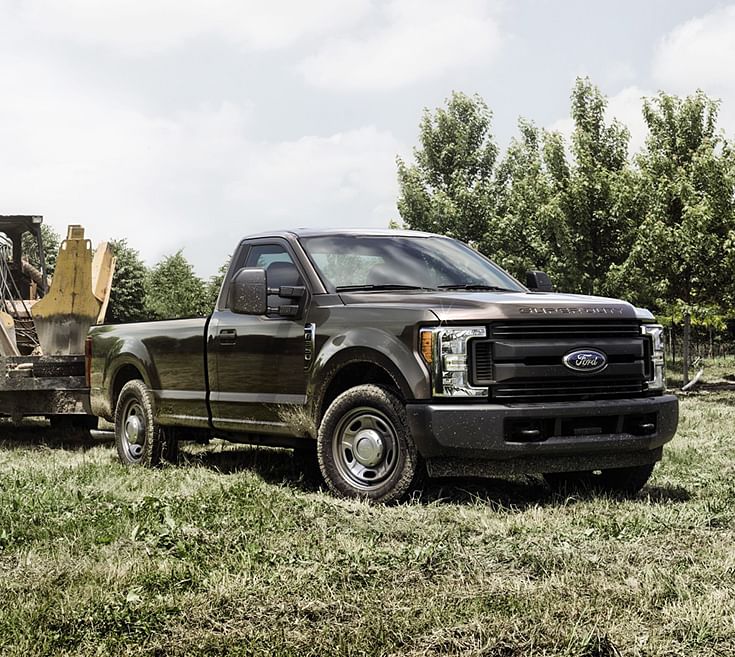Ford confirms exit from heavy truck business in South America
Key step toward returning its South America operations to sustainable profitability; production will cease at the São Bernardo do Campo plant in Brazil during 2019
As part of a comprehensive redesign of its global business, Ford Motor Company has announced it will exit the commercial heavy truck business in South America. As a result, the company will cease production at the São Bernardo do Campo plant in Brazil during 2019, ending sales of the Cargo lineup, F-4000 and F-350 – along with the Fiesta small car – once inventories are sold.

Ford's F-350 Super Duty XL.
“Ford is committed to the South American region by building a sustainable and profitable business with strengthened product offerings, outstanding customer experience, and a leaner more agile business model,” said Lyle Watters, president, Ford of South America.
The decision to exit the heavy commercial trucks business came after months of pursuing viable alternatives, including possible partnerships and a sale of the operation. The business would have required significant capital investments to meet market needs and increasing regulatory costs with no viable path to profitability.
“We know this action will have a major impact on our employees in São Bernardo and we will be working closely with all our stakeholders on the next steps,” Watters said. “Working closely with our dealers and suppliers, Ford will continue to provide support for our customers with warranty, parts and service.”
This decision follows other recent initiatives in the on-going redesign of the South American region including:
- Reducing salaried and administrative costs region-wide by more than 20 percent over the past few months
- Strengthening portfolio with SUVs and pickups that are growing in popularity with consumers while ceasing Focus production in Argentina
- Leveraging global partnerships, such as the recently announced alliance with VW to develop mid-size pickup trucks
In connection with this announcement, the company expects to record pre-tax special item charges of about $460 million. The charges will include approximately $100 million of non-cash charges for accelerated depreciation and amortization. The remaining charges of about $360 million will be paid in cash and are primarily attributable to separation and termination payments for employees, dealers, and suppliers. Most of these pre-tax special item charges and cash outflows will be recorded in 2019 and are part of the $11 billion in EBIT charges with cash-related effects of $7 billion the company expects to take in the redesign of its global business.
RELATED ARTICLES
Autoliv Plans JV for Advanced Safety Electronics With China’s HSAE
The new joint venture, which is to be located strategically near Shanghai and close to several existing Autoliv sites in...
JLR to Restart Production Over a Month After September Hacking
Manufacturing operations at the Tata Group-owned British luxury car and SUV manufacturer were shut down following a cybe...
BYD UK Sales Jump 880% in September to 11,271 units
Sales record sets the UK apart as the largest international market for BYD outside of China for the first time. The Seal...






 By Autocar Professional Bureau
By Autocar Professional Bureau
 20 Feb 2019
20 Feb 2019
 7129 Views
7129 Views





 Ajit Dalvi
Ajit Dalvi




